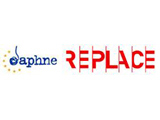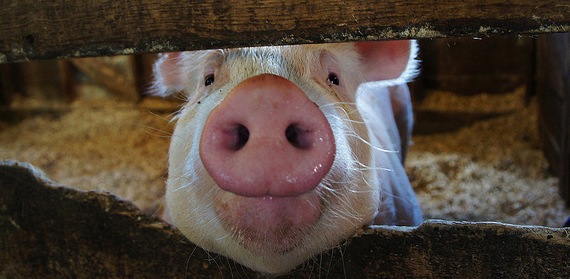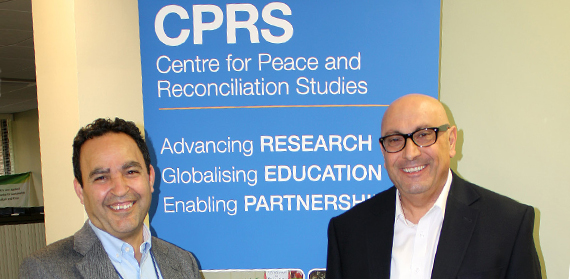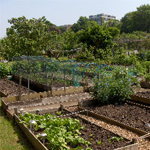Chain Consumers are increasingly interested in where there food comes from and how it arrives on their plate. Campaigning organisations have for years argued that food chains are too complex and too long, meaning that consumers are ‘disconnected’ from knowing about their food and its origins. ‘Reconnecting’ consumers with their food has been up and down political agendas for governments and food agencies ever since the ‘Mad Cow’ scare of the late 1980s and the ‘Foot and Mouth’ crisis of 2001. One way of achieving this reconnection is to ‘shorten’ food chains, and this has recently been the topic of a study carried out by Coventry University’s Centre for Agroecology and Food Security (CAFS).
Students at Coventry University received a unique insight into the ongoing peace process in the Middle East on Tuesday evening when the Palestinian ambassador to the UK spoke to them in the city centre.
 Coventry University is set to lead a Europe-wide project which aims to put an end to the illegal practice of female genital mutilation (FGM), after it was awarded funding to continue research into the issue.
Coventry University is set to lead a Europe-wide project which aims to put an end to the illegal practice of female genital mutilation (FGM), after it was awarded funding to continue research into the issue.

On 15th April 2013, C-DaRE and Decoda hosted ‘A Conversation with Karen Nelson and Charlie Morrissey’
 Dr Julia Wright is the deputy director of the Centre for Agroecology and Food Security (CAFS).
Dr Julia Wright is the deputy director of the Centre for Agroecology and Food Security (CAFS).
In my opinion, attempts to ensure that the world has access to sufficient and nutritious food are being held back by the view that increasing the productivity of agriculture is the only solution.
 Coventry University’s studies in adolescent sexual health (SASH) group have developed a new computer game called PRE:PARe – Positive Relationships: Eliminating coercion and Pressure in Adolescent Relationships which will be rolled out to schools in the coming months.
Coventry University’s studies in adolescent sexual health (SASH) group have developed a new computer game called PRE:PARe – Positive Relationships: Eliminating coercion and Pressure in Adolescent Relationships which will be rolled out to schools in the coming months.






